Four USF Health professors receive University's highest honor
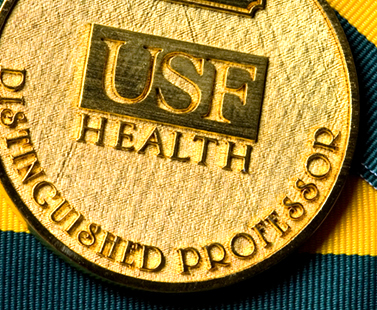
The outstanding contributions and internationally-recognized scholarly accomplishments of four USF Health professors have earned them the university’s highest honor — recognition as 2008 distinguished professors. One faculty member — Laurence Branch, PhD, College of Public Health — was awarded the title Distinguished University Professor. Three have been named Distinguished University Health Professor – C. Hendricks Brown PhD, College of Public Health, Susan McMillan, PhD, College of Nursing; and David Sheehan, MD, MBA, College of Medicine.
Originally established in 1998, the Distinguished University Professor (DUP) award recognizes USF senior faculty across all disciplines who have distinguished themselves among their peers both within and outside the university through their research, scholarship and creative activity. Selection is based on a process of nomination to the provost and external peer review. The recipients will have their titles formally bestowed at the university’s Fall 2008 Honors and Awards Ceremony.
The Distinguished University Health Professor (DUHP) award was established and presented for the first time in 2007. The award recognizes USF Health faculty members for their highly distinctive achievements in research, teaching and service. Like the DUP award, the DUHP is selected through a rigorous process of internal recommending review and external peer review. DUHP recommendations are forwarded to the senior associate vice president for USF Health. Each awardee will receive a commemorative medallion and be invited to present at the 2008-09 USF Health Lecture Series scheduled to begin this fall.
As leading experts in their fields, these distinguished professors attract millions of federal research dollars to USF, publish in prestigious journals, teach and mentor students who have earned top spots as health leaders in their disciplines, and share their time and talent with the community.
Distinguished University Professor
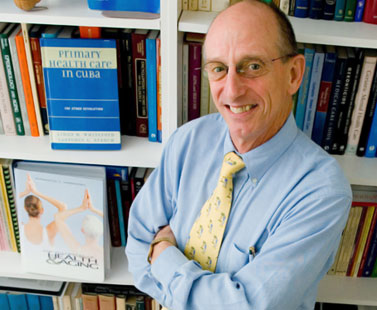
Laurence Branch, PhD
Department of Health Policy and Management
College of Public Health
Dr. Branch shares the Distinguished University Professor award with Authur Bocher of the Department of Communication, College of Arts and Sciences. Dr. Branch is an internationally-recognized researcher in the field of gerontology — one of only four scholars at USF to make the coveted Institute for Scientific Information list of “highly cited researchers.” He has been credited with conceptualizing the widely-used term “active life expectancy” to describe the time period during which the elderly are fully functional and independent. He has received external funding of more than $12 million to support his various research programs. His research interests include successful aging, life expectancy, quality of life, functional status of the elderly, long-term care needs and use, alternatives to institutional care, gerontologic epidemiology and intervention trials.
In recognition of his excellent teaching at the doctoral level, Dr. Branch had an award named in his honor — the “Laurence G. Branch Doctoral Student Research Award” — by the American Public Health Association’s Gerontological Health Section. The award is presented at the APA’s annual meeting. In addition to his exemplary scholarship and teaching contributions, Dr. Branch has served with distinction in several roles in professional organizations and is President-Elect of the USF Faculty Senate. He is a fellow of the Gerontological Society of America.
Distinguished University Health Professors
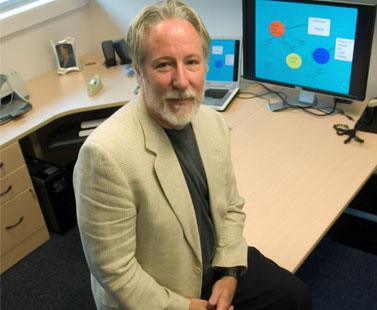
C. Hendricks Brown, PhD
Department of Epidemiology and Biostatistics
College of Public Health
Dr. Brown is an international leader in prevention science methodologies and statistics — routinely consulted by other top faculty in his field at other universities. His landmark work has been a major influence in the development of prevention science, which uses statistical theory to evaluate prevention strategies in community settings and requires close collaboration with research teams conducting field trials. The Prevention Science and Methodology Group he directs is testing several different approaches to reducing suicides in youth, evaluating the long-term impact of school-based prevention programs on mental disorders and substance use disorders, and testing new implementation strategies for widescale evidence-based programs, particularly in the foster care system. The PSMG has received continuous funding from NIH for 20 years, and over the past several years, he has been the principal or co-principal investigator on 10 NIH-funded grants. Dr. Brown is a member of and presenter on Institute of Medicine committees on prevention, and an advisor to CDC’s Injury Prevention Center.
Dr. Brown’s collaborative research showed the dramatic, long-lasting effects of a first-grade behavioral intervention, known as the Good Behavior Game, through young adulthood. This work, recently published in a special issue of the Journal of Drug and Alcohol Dependence, found that diagnosable disorders of alcohol and drug dependence or abuse, antisocial personality disorder, and suicidal behavior were reduced 13 years after the first-grade intervention. This randomized trial is one of the few studies that have demonstrated such long-lasting effects of a prevention program.
Dr. Brown and colleagues across the country are also examining the role that antidepressants may play in youth and young adult suicides. They found that the Food and Drug Administration’s urgent warning about increased suicide risk among youth taking newer antidepressants was soon followed by a marked reduction in both antidepressant use and diagnoses of depression, along with a 13-percent increase in youth suicides. These findings suggest that the FDA warning may have had the unintended consequence of reducing treatment for depression among the most severely affected children and adolescents.
Dr. Brown has been instrumental in helping develop the Biostatistics Master’s and PhD programs in the College of Public Health, playing a particularly important role in mentoring students, fellows, and junior faculty members. He gets outstanding student reviews for his teaching of biostatistics, a very difficult subject that he succeeds in making interesting and informative.
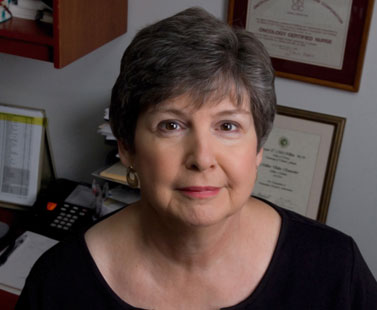
Susan McMillan, PhD
College of Nursing
Internationally known for her contributions to oncology nursing and quality of life at the end of life, Dr. McMillan is the Lyall & Beatrice Thomson Professor of Oncology Quality of Life Nursing at USF. She was inducted into the prestigious American Academy of Nursing in 1993 in recognition of her national and international stature as a nursing leader – making her one of only 1,500 nurses out of nearly 3 million nationally who have received this honor. Dr. McMillan was named American Cancer Society Professor of Oncology Nursing from 1990 to 2000, the maximum time allowed for any professor to hold the award. At USF, she has garnered many honors, including the Jerome Krivanek Distinguished Teacher Award, the Theodore and Venette Askounes-Ashford Distinguished Scholar Award, and the College of Nursing’s Outstanding Graduate Faculty Award. Currently the principal investigator for two large NIH grants, Dr. McMillan is recognized worldwide for her research and development of tools to measure symptom management and quality of life in patients with cancer.
Dr. McMillan founded and continues to direct the Oncology Nursing Program that prepares advanced practice nurses in oncology – a field of nursing in great demand. Her NIH training grant in cancer care was among the first to provide interdisciplinary education for nurses and physicians. She founded and played a key role in successfully transforming an interdisciplinary research group into the USF’s Center for Hospice, Palliative Care and End of Life Studies, which partners with hospices across West Central Florida.
Dr. McMillan has been active in research at Moffitt Cancer Center since its inception and is affiliated with the hospital’s Psychosocial Oncology Program, where she mentors post-doctoral fellows.
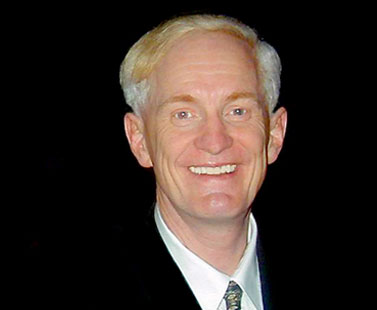
David Sheehan, MD, MBA
Department of Psychiatry and Behavioral Medicine
College of Medicine
One of the world’s leading authorities on anxiety disorders, Dr. Sheehan came to USF from Harvard Medical School where he contributed to the conceptualization and classification of panic disorder as a biological illness and conducted the first controlled trial of Xanax for panic disorder. He was a pioneer of psychopharmacology research evaluating several classes of antidepressants (including SSRIs) in the treatment of anxiety disorders. Dr. Sheehan’s structured diagnostic interview, The Mini-International Neuropsychiatric Interview (MINI), has been translated into 48 languages and has become the most widely used diagnostic interview in psychopharmacology research and clinical settings. Modules of the MINI have been adopted by the U.S. government to screen and track the mental health of American troops, and the child and adolescent version of the MINI is being used in the largest epidemiological study on the mental health of China’s youth. Several of his psychiatric rating scales are widely used in international studies.
Director of the COM’s Depression and Anxiety Research Institute, Dr. Sheehan has been awarded more than $16 million in grants for psychopharmacology, pharmaco-economics and epidemiology studies. His bestselling book The Anxiety Disease (which has sold more than a half-million copies) draws upon his research and his own pioneering breakthroughs in treating panic disorder. Dr. Sheehan is widely sought as a lecturer internationally and has served as a consultant to the World Health Organization, the World Federation of Societies of Biological Psychiatry, the International Academy for Biomedical and Drug Research, the U.S. Congress, the U.S.Food and Drug Administration, and the National Institute of Mental Health, to name a few.
He was elected as a member of the American College of Psychiatrists and is a Distinguished Fellow of the American Psychiatric Association.
Story by Anne DeLotto Baier, USF Health Communications
Photos by Eric Younghans, USF Health Media Center

